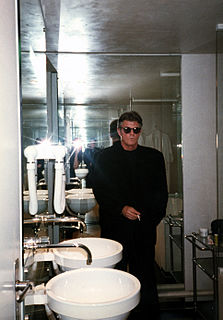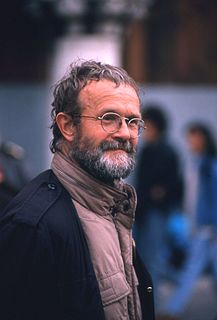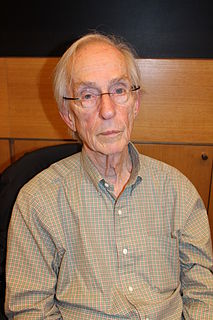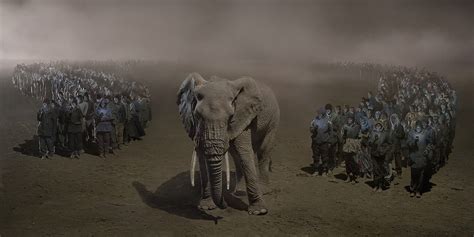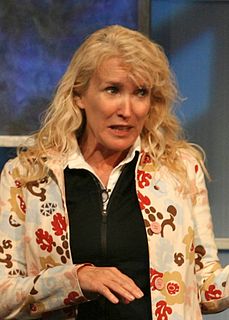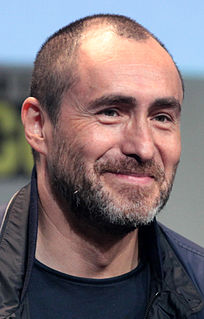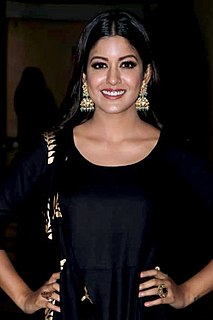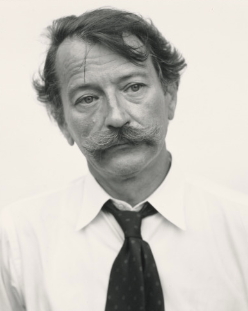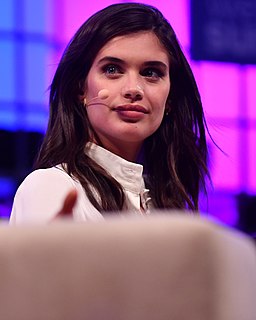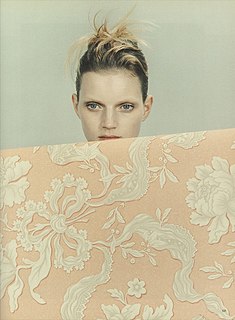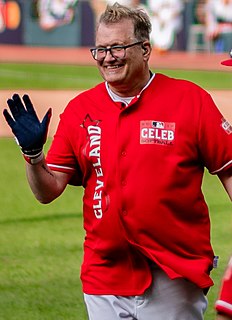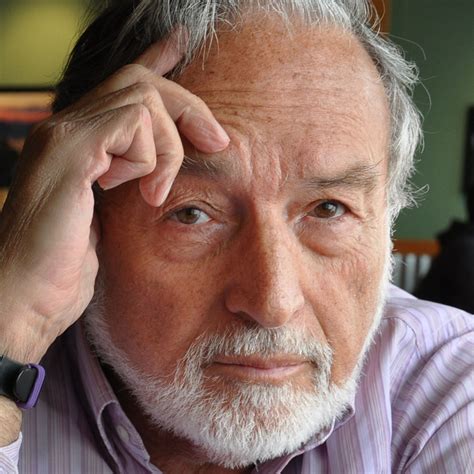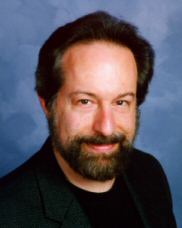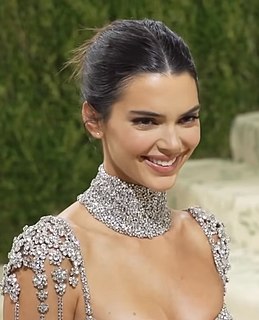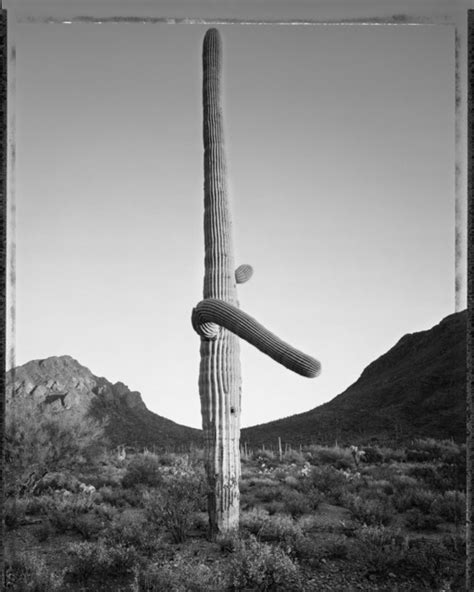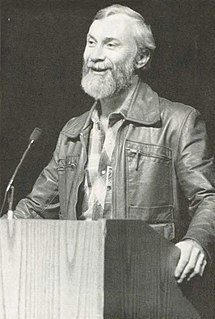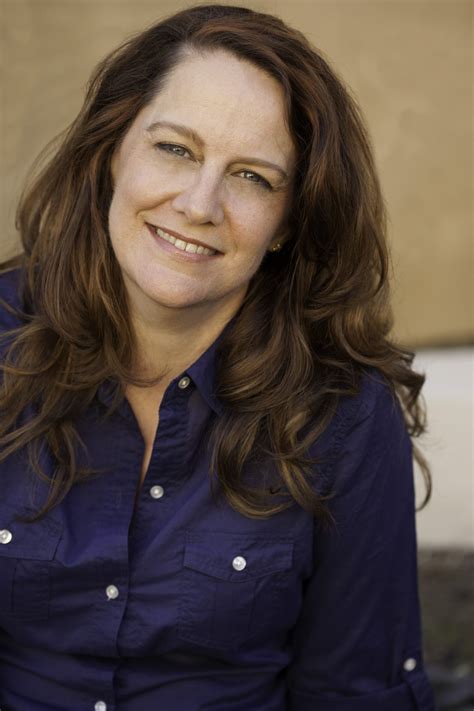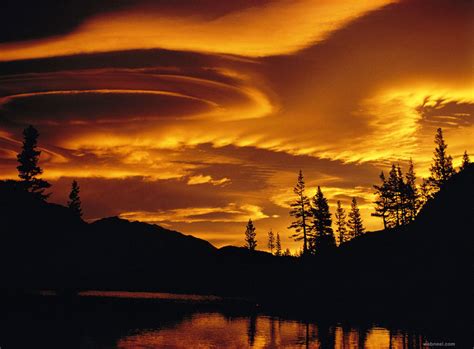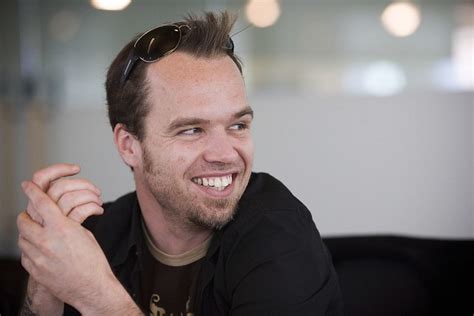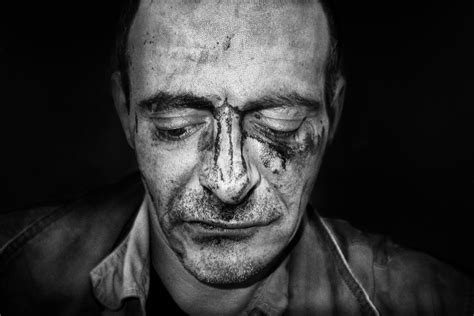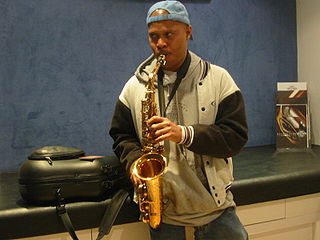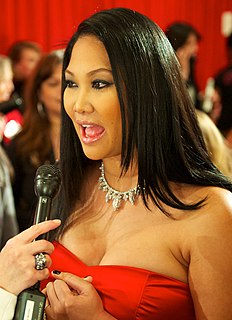Top 537 Photographers Quotes & Sayings - Page 9
Explore popular Photographers quotes.
Last updated on November 24, 2024.
What I find difficult about photo shoots is the line between playing a character - you're being asked by the photographer to take on a role like you would in a movie - and being a fancier version of yourself. It's about finding that line between being spontaneous and open to direction, but also trying to explain to photographers that the "me" is often taken out of context because it has all of this other stuff attached to it.
We don't understand what photography is doing. We don't understand the power of its rhetoric. We don't understand why the Provoke photographers showed Tokyo city as a ghastly and alien city when it was really going through this period of mega-capitalist growth. It's a very, very, very powerful force, the photograph. People ask me why it has such an ability to captivate us. And I just don't know.
There's an idea that it's hard to be a woman artist. People assume that women have fewer opportunities, less power. But it's not any harder to be a woman artist than to be a male artist. We all take what we are given and use the parts of ourselves that feed the work. We make our way. Photographers, men and women, are particularly lucky. Photography lets you find yourself. It is a passport to people and places and to possibilities.
For spiritual companions I have had the many artists who have relied on nature to help shape their imagination. And their most elaborate equipment was a deep reverence for the world through which they passed. Photographers share something with these artists. We seek only to see and to describe with our own voices, and, though we are seldom heard as soloists, we cannot photograph the world in any other way.
I was living in Monterey, a place where the classic photographers - the Westons, Wynn Bullock and Ansel Adams - came for a privileged view of nature. But my daily life very rarely took me to Point Lobos or Yosemite; it took me to shopping centers, and gas stations and all the other unhealthy growth that flourished beside the highway. It was a landscape that no one else had much interest in looking at. Other than me.
But everyone cannot be there, and that is why photographers go there - to show them, to reach out and grab them and make them stop what they are doing and pay attention to what is going on - to create pictures powerful enough to overcome the diluting effects of the mass media and shake people out of their indifference - to protest and by the strength of that protest to make others protest.
I never had any intention nor interest in being an artist, but when I made work I realized that this was my language. What I had to say needed to be said in this way. I always loved taking photographs - but never considered myself a photographer. I have tremendous respect for photographers. I do use a camera and a photo as a basis for a lot of my work, but I use it as a means to attain an image to work from. The actual photography in my work is a monochromatic photograph. I'll photograph something and extract a color that will then be the background for a painting.
There are a lot of perks that come with fame and with every positive there's a negative and then it all kind of balances out. The travelling is great. You get to see so many different places but there's a downside; having everything splattered across every media resource that exists, being chased by photographers and have them sit at the end of your driveway every day. But it all kind of balances.
Anthropology... has always been highly dependent upon photography... As the use of still photography - and moving pictures - has become increasingly essential as a part of anthropological methods, the need for photographers with a disciplined knowledge of anthropology and for anthropologists with training in photography has increased. We expect that in the near future sophisticated training in photography will be a requirement for all anthropologists. (1962)
Bill Blass came in all the time, and I would make him roast chicken with spring potatoes and spring porcini with spring onion. And baby artichokes. And never, ever did he find a better chicken. Norman Parkinson, one of the greatest photographers alive, came every lunch to Le Cirque. And every time he would clean up his plate with his bread and then he would take his marker and write on the plate how much he loved the food. I think at Le Cirque I learned how to make real food, which is what people crave, not just gimmicky things on a plate.
It's just a matter of who you are and how you talk to people. Your subjects will trust you only if you're confident about what you're doing. It really bothers me when photographers first approach a subject without a camera, try to establish a personal relationship, and only then get out their cameras. It's deceptive. I think you should just show up with a camera, to make your intentions clear. People will either accept you or they won't.
It's a little bit like talking about the life of writing. The life of writing may be about many things, but it always begins with the writer. With the kernel of an idea, or a character, or an idea or a theme, or even an outcome. But for documentary photographers, photographs begin at that intersection of the real world and the imaginative inner world.
Photographers tend not to photograph what they can’t see, which is the very reason one should try to attempt it. Otherwise we’re going to go on forever just photographing more faces and more rooms and more places. Photography has to transcend description. It has to go beyond description to bring insight into the subject, or reveal the subject, not as it looks, but how does it feel?
The fact is that relatively few photographers ever master their medium. Instead they allow the medium to master them and go on an endless squirrel cage chase from new lens to new paper to new developer to new gadget, never staying with one piece of equipment long enough to learn its full capacities, becoming lost in a maze of technical information that is of little or no use since they don't know what to do with it.
Making information free is survivable so long as only limited numbers of people are disenfranchised. As much as it pains me to say so, we can survive if we only destroy the middle classes of musicians, journalists, and photographers. What is not survivable is the additional destruction of the middle classes in transportation, manufacturing, energy, office work, education, and health care. And all that destruction will come surely enough if the dominant idea of an information economy isn't improved.
The traditional difficulty of balancing the mechanical with the imaginative schools of photography still operates. In schools of photography meaningful art education is often lacking and on the strength of their technical ability alone students, deprived of a richer artistic training, are sent forth inculcated with the belief that they are creative photographers and artists. It is yet a fact that today, as in the past, the most inspiring and provocative works in photography come as much (and probably more) from those who are in the first place artists.
The intensive use of photographs by mass media lays ever fresh responsibilities upon the photographer. We have to acknowledge the existence of a chasm between the economic needs of our consumer society and the requirements of those who bear witness to this epoch. This affects us all, particularly the younger generations of photographers. We must take greater care than ever not to allow ourselves to be separated from the real world and from humanity.
To me a translator is very, very important. If the fixer is also the translator, so much the better. I have known photographers who didn't speak the language and would work in a place for weeks without one, getting by on common sense and smiles. But how many situations did they miss because they couldn't talk to someone and get the back story on details, small daily life things, etc.
I still think photographers should be lashed out at. They should be put in a cage where you can poke them with a stick for a quarter. But not in a hostile way, just for giggles. They really are on the attack against mankind; it's a disease. They should be helped somewhere. But I'd still like to poke them with a stick.
Poetry is the essence of everything, and it’s through deep contact with reality and living fully that you reach poetry. Very often I see photographers cultivating the strangeness or awkwardness of a scene, thinking it is poetry. No. Poetry is two elements which are suddenly conflict — a spark between two elements. But it’s given very seldom, and you can’t look for it. It’s like if you look for inspiration. No, it just comes by enriching yourself and living.
Photographers learn to interpret photographs in that technical way because they want to understand and use that 'language' themselves just as musicians learn a more technical musical language than the layman needs. Social scientists who want to work with visual materials will have to learn to approach them in this more studious and time-consuming way.
Few photographers have ever considered the photography of wild animals, as distinctly opposed to the genre of Wildlife Photography, as an art form. The emphasis has generally been on capturing the drama of wild animals IN ACTION, on capturing that dramatic single moment, as opposed to simply animals in the state of being.
A lot of people love Tarantino’s films because they’re spectacular, they’re beautiful, they’re wonderful. He hires the best group of artists - not only actors, but everyone around: best photographers, best set designers, best production designers, costume designers. A lot of people love his films because they’re bloody, they’re gory, they’re savage. But very few people see that he’s a very political director.
One of the leading uses of photography by the mass media came to be called photojournalism. From the late 'twenties' to the early 'fifties' what might have been the golden age of this speciality - photographers worked largely as the possessors of special and arcane skills, like the ancient priests who practiced and monopolized the skills of pictography or carving or manuscript illumination. In those halcyon days the photographer enjoyed a privileged status.
At one with the power of the American landscape, and renowned for the patient skill and timeless beauty of his work, photographer Ansel Adams has been visionary in his efforts to preserve this country's wild and scenic areas, both in film and on Earth. Drawn to the beauty of nature's monuments, he is regarded by environmentalists as a monument himself, and by photographers as a national institution. It is through his foresight and fortitude that so much of America has been saved for future Americans.
I think people in the fasion industry need to listen more and not look the other way when someone has a voice. We need to stop sending girls and boys to photographers or professionals who are known to be abusive. There should be a much more controlled environment in place for young models to protect them, and this should be led and supported by professionals in the industry. We need to create an environment in which models feel safe sharing information about their on-set experiences, instead of being silenced.
There is an interesting and new way to be excited about the fashion world today maybe. The traditional path of fashion as simple magazine images has dissolved - we are seeing new and innovative ways to share, create, and enjoy ideas. I am challenged to learn and explore paths of finding new photographers, stylists, and vision-makers online or through direct contact, connecting with ideas and creativity in new ways, and making images with different outlets. Sometimes more unbridled avenues and unconventional ways lead to things I wouldn't have thought of yet.
A close friend of mine, Annie Leibovitz, who I've known for forty years, photographs celebrities every single day of the week but they all seem to look the same even though she's one of the most creative photographers alive. They all just look the same. Brad Pitt is a great actor but all the pictures of Brad Pitt look the same.
Because I take very seriously the idea that I can make an impact in the world, I hold back my voice so I can make more of an impact when I do use it. A cause like One Billion Rising is something I want to scream about, and I want you to take that scream seriously because I don't fall out of nightclubs. I don't have photographers capture me spending untold amounts on a handbag.
Books on scientific photography with such beauty, breadth, and insight are rare. Felice Frankel's Envisioning Science is chock full of mind-boggling images and valuable information--not only for curious artists, students, and lay people, but also for seasoned researchers and photographers. The eclectic Frankel is both a scientist and photographer, and with the cold logic of the one and the inspired vision of the other, she covers an array of topics sure to stimulate your imagination and sense of wonder at the incredible vastness of the physical world.
A lot of people are like, "Oh, it's so much easier to be a supermodel now because you have Instagram. You don't even need an agency anymore." But that's just not true. I still had to go to all the castings, I still had to go meet all the photographers, I still had to do all of that to get to where I am now. There wasn't a step taken out just because I had social media. I still have 12-hour days, I still have even 24-hour days sometimes; I still have to do all those things. We don't work any less hard than the '90s models did when they were young.
The Chicago City News Bureau was a tripwire for all the newspapers in town when I was there, and there were five papers, I think. We were out all the time around the clock and every time we came across a really juicy murder or scandal or whatever, they'd send the big time reporters and photographers, otherwise they'd run our stories. So that's what I was doing, and I was going to university at the same time.
Fine-art photography is a very small world associated with galleries, museums, and university art programs. It's not like rock music; the products of this world have never been widely seen because the artists are often exploring things that are not already coded in general consciousness. It's not that photographers don't want to be famous, it's just that very few of the views from the edges of culture make the mainstream. Ansel Adams was an exception.
I've had my body manipulated so many different times for so many different reasons, whether it's paparazzi photographers or for film posters. The topless Interview shoot was one of the ones where I said: 'OK, I'm fine doing the topless shot so long as you don't make them any bigger or retouch.' Because it does feel important to say it really doesn't matter what shape you are. I think women's bodies are a battleground, and photography is partly to blame. Our society is so photographic now, it becomes more difficult to see all of those different varieties of shape.
Photographers usually want to photograph facts and things. But I'm interested in the nature of the thing itself. A photograph of someone sleeping tells me nothing about their dream state; a photograph of a corpse tells me nothing about the nature of death. My work is about my life as an event, and I find myself to be very temporal, transient.
Today's photographers think differently. Many can't see real light anymore. They think only in terms of strobe - sure, it all looks beautiful but it's not really seeing. If you have the eyes to see it, the nuances of light are already there on the subject's face. If your thinking is confined to strobe light sources, your palette becomes very mean - which is the reason I photograph only in available light.
Anyday, one can walk down the street in a big city and see a thousand people. Any photographer can photograph these people - but very few photographers can make their prints not only reproductions of the people taken, but a comment upon them - or more, a comment upon their lives - or more still, a comment upon the social order that creates these lives.
...photographers who carry 60 pounds of equipment up a hill to photograph a view are not suffering enough, although their whining causes enough suffering among their listeners. No, if they really expect us to respect their search for enlightenment and artistic expression, in [the] future they will drag the equipment up the hill by their genitals and take the view with a tripod leg stuck through their foot.
I have known know many therapists who come out of Pacifica Graduate Institute and love being both artists and therapists at the same time, like Maureen Murdock. They are photographers and dancers and other kinds of things and therapists at the same time. I think it really makes them a much more interesting therapist because they're so engaged with the imagination and the creativity and the depths of who they are.
My work has gotten a bit strange. I do consulting, and people ask, "Could you give me your opinion on this, and could you take a picture?" And I've been approached by a lot of magazines, but I'm trying to take it slowly. In fact, I'm part of the first generation of photographers who don't have to depend on magazines because we have our own media and everyone sees our photos.
At the heart of all photography is an urge to express our deepest personal feelings - to reveal our inner, hidden selves, to unlock the artist. Those of us who become photographers are never satisfied with just looking at someone else's expression of something that is dear to us. We must produce our own images, instead of buying postcards and photo books. We seek to make our own statements of individuality.
With photography, everything is in the eye and these days I feel young photographers are missing the point a bit. People always ask about cameras but it doesn't matter what camera you have. You can have the most modern camera in the world but if you don't have an eye, the camera is worthless. Young people know more about modern cameras and lighting than I do. When I started out in photography I didn't own an exposure meter - I couldn't , they didn't exist! I had to guess.
The prejudice many photographers have against colour photography comes from not thinking of colour as form. You can say things with colour that can't be said in black and white... Those who say that colour will eventually replace black and white are talking nonsense. The two do not compete with each other. They are different means to different ends.
Saudi Arabia is so conservative. At first there were photographs of women I took that I couldn't publish - of women without their abayas. So I started writing out little anecdotes about things I couldn't photograph and wove it in with a more obscure picture and called it "moments that got away". I realised these worked as well as the photographs by themselves. There are a lot of photographers who feel the story is all in the photographs but I really believe in weaving in complementary words with the pictures.
My greatest passion has always been connecting with creative people, appreciating the artistic and discovering fresh perspectives on the world. I came on board to use my experience in building an international community of photographers, illustrators and video artists at iStockphoto who learned, grew and sold their work to millions around the world. Building a community that large requires personality, a keen sense of what both the contributing artists and the buying audience need, and an ability to balance both. I wanted very much to transfer those skills to the fine art world.
And one has to remember that no photography can pretend to show the truth. A picture only shows a given situation under a very specific perspective, consciously or not, openly or not, relevantly or not. Photographers have to accept they can just convey fragments of illusory realities and relate their own intimate experience of the world. In this process of fictionalising an unreachable truth, it's up to them to impose their doubts about any photographic truth, or accept being impotent pawns in the mediatic game.
Laugh, love, dream, strive, smile, feel, joy, look, try, fail, read, walk, search, share, help, work, fun, learn, retry, sweat, cry, rest, wait, fear, hope, trust, pride... when we have lived all of these, our photography might stop being a record of what our camera sees and become an expression of what we as photographers feel.
I can't stand when girls come to me and say they want to be a model, but they can't tell me who the top three photographers are in the world. They can't tell me who the top five biggest models are or name three cosmetics companies. They can't even name the top fashion magazines! You have to get it together and know your stuff.
I'm not particularly good at coping with it. I just cope. I just leave my brain at the door and just stand there. I can get the screaming more than I get the photo things. That's the worst, when you have this wall of photographers. I've never understood the logic in how they do it. Everybody shouts at the same time, and you're trying to do a logical thing, looking from the left to the right. And they almost always end up looking disappointed with you afterwards.
I can think of numberless males, from Bonnard to Callahan, who have photographed their lovers and spouses, but I am having trouble finding parallel examples among my sister photographers. The act of looking appraisingly at a man, making eye contact on the street, asking to photograph him, studying his body, has always been a brazen venture for a woman, though, for a man, these acts are commonplace, even expected.




